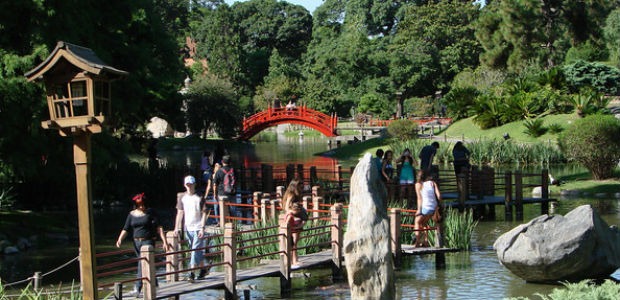For many TEFL teachers, the appeal of a specific foreign country can play a large part in choosing their TEFL destination. I asked Marla McPherson, currently teaching EFL in Buenos Aires, Argentina, about her love for the country and why she chose Argentina as her TEFL destination.
1) What do you like most about Argentina and why?
The things I like most about Argentina: the history, the landscape, the wine (with artisan salamis, cheeses and pickled eggplant), the ritual of drinking mate with friends, the gauchos, the mournful music and dance of tango, and of course, the people!
2) What made you choose Argentina as your TEFL destination?
For as long as I can remember, I have dreamed of living in Argentina and learning Spanish. Argentina is a large country with a diverse landscape ranging from glaciers, the Andes mountains, vast pampas, farmland, desserts and tropical forests. And Buenos Aires is a unique mix of the old European culture and architecture with a South American color and vibrancy.
3) What is the best part of teaching English in Argentina and why?
Argentines love a good conversation. They love to ask questions, learn about your culture and ideas and share their culture and ideas. Porteños (what people in Buenos Aires call themselves) are a passionate people who love to complain, but also love to laugh. The students are eager to learn and eager to share their time with you. So teaching English in Argentina is really about connecting with people in a rich and interesting international exchange.
4) Would you recommend Argentina as a good location to TEFL?
The advantages: the wonderful, motivated students; friendly people; a rich cultural exchange; the opportunity to learn and practice Spanish; the opportunity to live in a beautiful country with most of the modern conveniences; and there is plenty of work. The disadvantages: high cost of living; rising inflation; relatively low wages; stressful schedules which require lots of time on public transportation traveling from one job to the next. The key to success is to plan ahead with a little extra savings and budget your time so that you can travel and have the extra financial security if you need it.
5) Describe a typical day for you in Argentina.
A typical day, like yesterday, I woke to rolling thunder that shook and rattled the house, followed by the sound of torrential rain. It is spring in Argentina and the electrifying thunderstorms are back. I left the house at 7:40 a.m. to catch bus 39, which typically has more free seats during the rush hour and was lucky to score a seat. The bus travel is always a great way to glimpse into the lives of Porteños …, businessmen falling asleep next to little old ladies on the bus, people walking to work with their colorful umbrellas, girls in their “stylish” leopard skin rubber boats.
The Porteños are famous for their complaints, yet I rarely hear them complain about the weather, a big contrast to my culture. I arrived to work in time to receive a text from my student saying that he overslept. So I helped myself to some tea and read celebrity magazines from Mexico while I waited. Many of my classes are with a cable television company that provides several higher-end artsy and gourmet cooking channels to all of Latin America. My student brought me a bag of little bakery cookies to apologize for being late and we proceeded with our class on comparing and contrasting.
After our class, I hopped on the subway (happy to arrive to my next class on time after a 10-day subway strike), with a private student who always fixes me tea. This class was about quantifiers, which always involves a lot of discussion about wine, meat and mate. Then I traveled again by bus back to the Palermo Hollywood neighborhood for my afternoon group classes. In the first, we studied for the upcoming test game-show style. And then for my biggest class with 7 students, we did formal presentations about family traditions in Argentina. The presentations included topics such as: the trend of adult children living at home with their parents longer (until mid-to-late 30s); the trend of people waiting longer for marriage and to start their own families; and the re-defining of “traditional” families as the form of “families” in Argentina is becoming much more alternative.
I ended my day by meeting a private student at a traditional bar, drinking more tea and eating sticky sweet medialunas (croissants), and occasionally interrupting our class on phrasal verbs to check the score of the futbol match between Argentina and Germany. Argentina won 2-0.
Get TEFL certified in Argentina and teach English in Buenos Aires!
This post was written by Willow Pergl.











